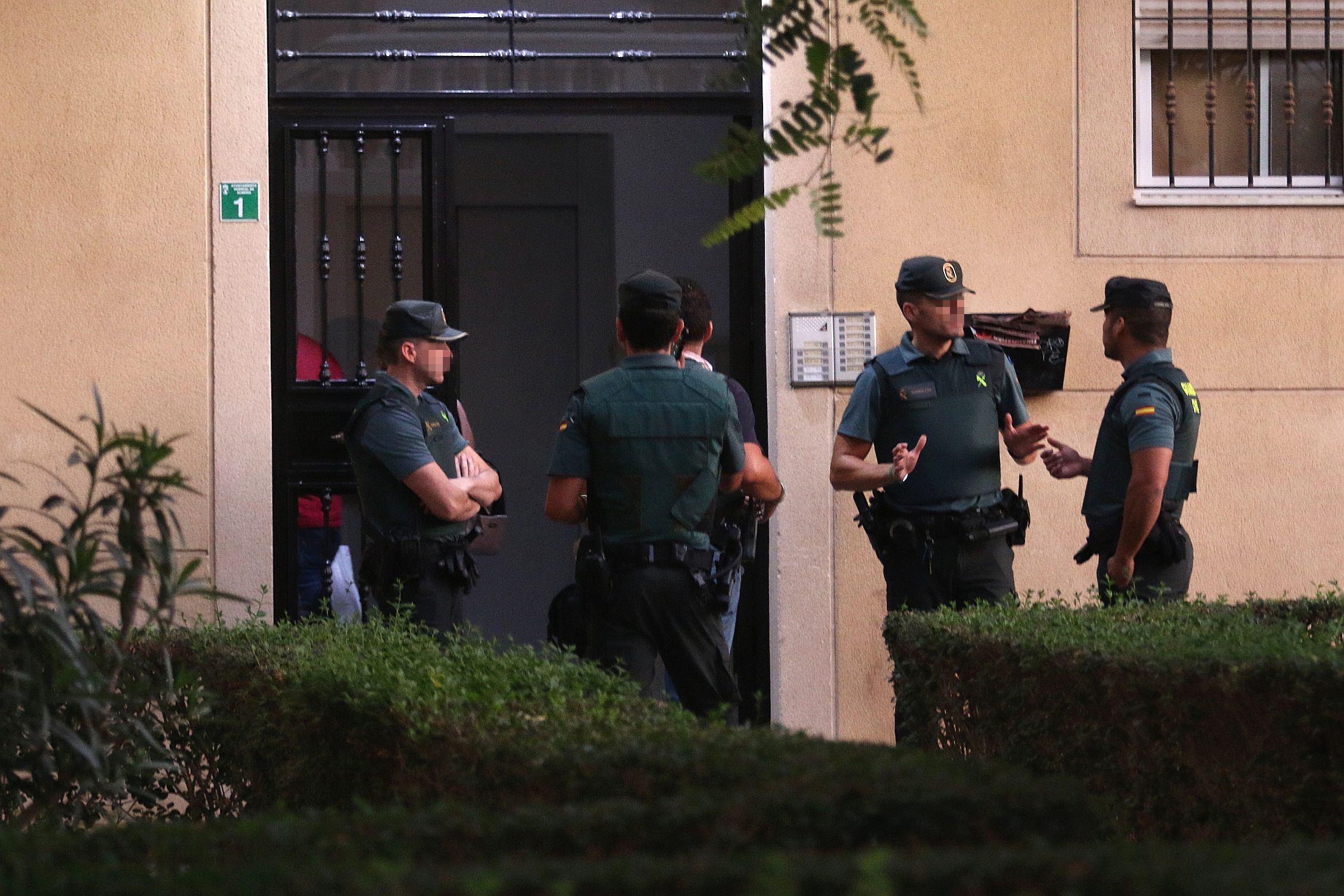Almería The grandfather of the boy murdered in El Ejido feared the worst: "We fear that the mother will kill my grandson"
Events A woman was arrested for strangling her seven-year-old son in El Ejido
That October 10, 2019 was Thursday and Sergio, 7 years old, was lying in bed where, until not long ago, his parents slept.
The relationship had broken down and the two parents were fighting in court for custody of the minor, but Sergio rested in the bedroom where only his mother slept
with him "trusting and unsuspecting"
.
And, above all, completely oblivious to the plan that his mother had conceived.
Suddenly, the mother, Ana María Baños, pounced on the son, placed a cloth bow around his neck and squeezed him until he
suffocated
.
She did it because she wanted to cause her former partner as much damage as possible.
The account of the events and also the motivation are included in the
sentence
by which the Supreme Court has just ratified the conviction of the mother and in which the High Court expressly mentions "vicarious violence", an expression habitually used in gender violence to refer to the violence that men exercise against battered women through children in common.
After ending Sergio's life, she adds the account of events, took the body and put it in her car, being intercepted at the Norias de Daza, in El Ejido, by a Civil Guard patrol whom she tried to run over in several occasions.
At the time, she was carrying
1,400 euros
in cash, although at trial she denied that she had any intention of fleeing.
She also rejected before the
popular court
that tried her in March 2021 that she wanted to harm her former partner.
"I don't know why she says that," she stated, adding that she was not afraid that Sergio's custody dispute could be resolved against her.
Agents of the Civil Guard guard the access to the block of flats where the crime occurred in October 2019. EUROPA PRESS
However, the paternal family feared a tragic outcome and the little boy's grandfather told a very close person in those days that they feared "for the child's death."
The speaker of the ruling, Judge Julián Sánchez, sees in the case "the features that are classified as
vicarious violence
" because, after ruling out the defense argument that the parricide acted due to a mental disorder, he points out that of the Testimonies and expert reports show the opposite.
In fact, he says that in the days prior to the crime, Ana María's condition "was one of sadness, apathy and the desire to return to her former partner" and adds that "the frustration, anger and impotence" were growing not only against his former partner, but also
against his son
.
The recourse to psychotic outbreaks was already one of the central lines
of the defense strategy
in the trial and Ana María herself attributed some previous episodes with the minor's father to these disorders, such as sending 185 WhatsApp messages in a single day or the complaint that he filed against him in 2017 for ill-treatment and from which SFL was acquitted.
With these arguments, the Supreme Court ratifies in all its extremes the resolution issued in 2021 by the Provincial Court of Almería and that, in addition to murder -with the aggravating circumstance of
kinship
and the extenuating circumstance that he confessed the facts-, included a crime of psychological injuries against the ex-husband and father of the deceased for which he added three years in prison to the permanent prison.
"Conscientiously and voluntarily", says the sentence, he wanted to cause
"the greatest possible damage"
to the father of the child, SFL, who after the events presents severe anxious depressive symptoms and post-traumatic stress disorder that still affects his life today everyday.
The Supreme Court thus rejects the defense's attempt to modify the prison sentence by internment in a
psychiatric hospital
, alleging that at the time he killed the minor he suffered from an acute and transitory psychotic disorder that seriously altered his faculties.
But the High Court has few doubts, if any, that Ana María was fully aware of what she was doing.
To this he adds the statements of the parricide herself, who acknowledged that "there was nothing unusual" in the days before the son's death.
The Supreme Court does not deny that it could suffer alterations, "but this does not mean that the subject's ability to understand and want is diminished or altered from the point of view of
criminal responsibility,
" he adds.
Conforms to The Trust Project criteria
Know more

